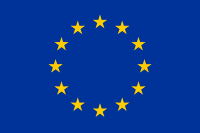#2 Policy Recommendation Area
Empower democratic and community-focused cultural heritage institutions
2.3 Develop frameworks for digital community engagement
Target Stakeholders
![]() Heritage Networks
Heritage Networks
![]() Cultural Heritage Institutions
Cultural Heritage Institutions
![]() Other stakeholders
Other stakeholders
Recommendation
Analogue and digital experiences should not be considered exclusive, but should instead be seen as complementary. At the same time, the need to understand the emerging and changing heritage communities is gaining importance. Therefore, the development of new research frameworks in cultural heritage institutions focused on better understanding of digital heritage communities should be supported, in order to better understand the newly forming or still evolving communities.*
To remain relevant to their communities and to create a true added value through their (digital) offers, cultural heritage institutions should be supplied with tested and harmonised methods and tools which allow them to understand their communities’ needs and behaviours. This will enable them to compare and to reach their digital communities objectives, also keeping in mind ethical and privacy issues.
The research capacity should also empower cultural heritage institutions to create strategies allowing them to reforge passive community participation into active participation, encouraging stakeholders to become active contributors.




